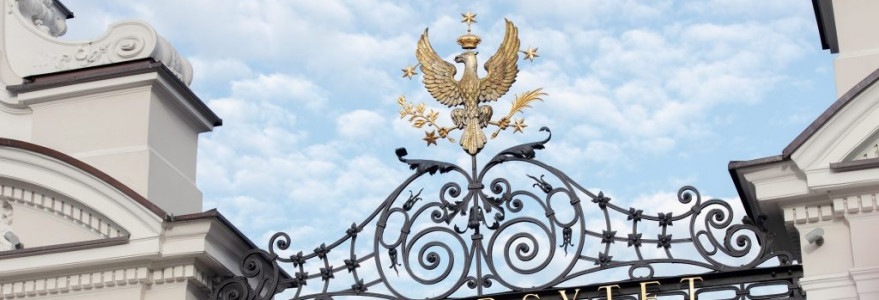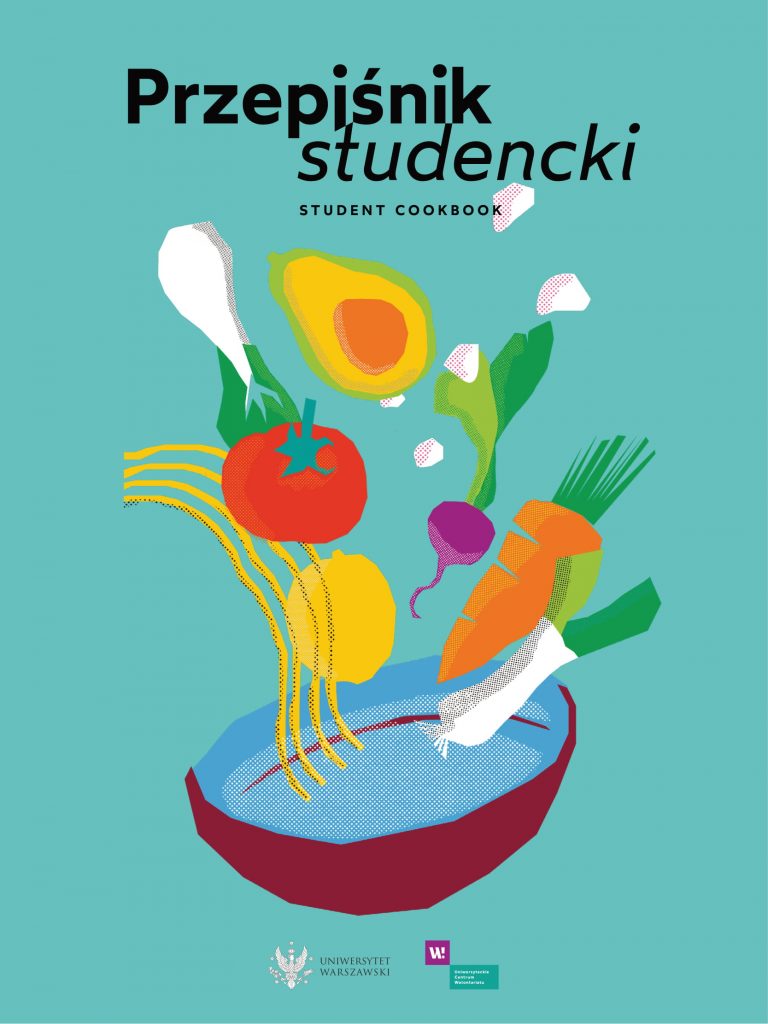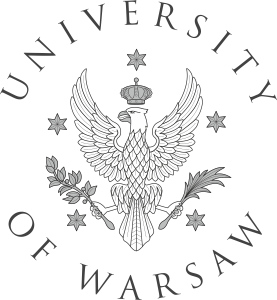27 maja 2021

On 9th June, Welcome Point organises an online meeting on the legalisation of stay in Poland. During the webinar, participants will learn the most important legal aspects regarding their residence in Poland during their studies and after graduation. The application deadline is 2nd June.
The legalisation of stay in Poland during studies and other legal aspects are the most frequent topics discussed by international students and candidates. For those who are currently wondering whether they need to legalise their stay, or how this procedure looks like during a pandemic, Welcome Point organised webinars dedicated to students from non-EU countries. The meeting will be led by specialists from The Association for Legal Intervention, who professionally provide assistance in legalising the stay of international students at UW.
During the meeting, the following issues will be discussed:
- The legalisation of residence in Poland (visa, permanent residence permit)
- Differences between a student visa and a temporary residence permit
- The procedure of application for a residence permit
- Taking up a job during studies
- The legalisation of stay after obtaining a university diploma
- Polish descent and Card of the Pole holders’ rights
- Special solutions for foreigners caused by the outbreak of the coronavirus pandemic
Webinars will be held online for safety reasons.
- Meeting in English: 9th June 2021, 3:00 p.m. CEST
- Meeting in Polish: 11th June 2021, 3:00 p.m. CEST
To participate in the event, students and candidates are requested to register in advance by completing the form. The application deadline is 2nd June.
At the end of the meeting, the Q&A session will be held. Experts will answer the questions that can be sent along with the registration form.
More information on meeting and the legalisation of stay in Poland is available on the Welcome Point website >>
Source: www.en.uw.edu.pl

The Global Ranking of Academic Subjects (GRAS), compiled by ShanghaiRanking Consultancy, is out. Mathematics and Physics, run by the University of Warsaw, were ranked 76-100. Also, nine other UW subjects were listed in the ranking.
The 2021 GRAS is one of the most comprehensive and objective rankings of world universities by subjects. This year league table contains rankings of universities in 54 subjects across natural sciences, engineering, life sciences, medical sciences, and social sciences. Over 1 800 out of 4 000 universities across 93 countries and regions are listed in the rankings.
The University of Warsaw in GRAS 2021:
Ranked 76-100
Ranked 201-300
Ranked 301-400
- Atmospheric science
- Biotechnology
- Political science
- Psychology
- Nanoscience and Nanotechnology
Ranked 401-500
- Economics
- Chemistry
- Materials science and Engineering
The ranking was compiled based on the following indicators: research output (Q1), research influence (CNCI), international collaboration (IC), research quality (Top), and international academic awards (Award).
More information on the Global Ranking of Academic Subjects 2021 >>
Source: www.en.uw.edu.pl
Project Manager – dr hab. Sebastian Kmiecik, Head of Laboratory of Computational Biology at Biological and Chemical Research Centre, Faculty of Chemistry, University of Warsaw is looking for candidates to work on the scientific project: „Development of tools for the rational design of peptide therapeutics” financed by the National Science Centre OPUS program for PhD student (2 positions). Deadline for applications: 20 June 2021. For more info see >> pdf
26 maja 2021
Project Manager – Dorota Latek, DSc PhD (Head of Modeling of Cellular Processes Laboratory, Faculty of Chemistry, University of Warsaw) is looking for candidates to work in a research project: „Self-learning systems in the design of compounds modulating GPCR receptors activation”, OPUS 20 – National Science Centre. Deadline for applications: 30 June 2021. For more info see >> pdf
Project Manager – Dorota Latek, DSc PhD (Head of Modeling of Cellular Processes Laboratory, Faculty of Chemistry, University of Warsaw) is looking for candidates to work in a research project: „Self-learning systems in the design of compounds modulating GPCR receptors activation”, OPUS 20 – National Science Centre. Deadline for applications: 30 June 2021. For more info see >> pdf
24 maja 2021
The Centre of New Technologies invites to a webinar by
Prof. Michael Feig,
Michigan State University, USA
Title: Can machines learn all of the rules of physics, chemistry, and biology?
Date: 28th May 2021 (Friday)
Time: 14:00 pm (Central European Summer Time)
Host: prof. Joanna Trylska,
Virtual seminar: https://us02web.zoom.us/j/81220964820
Meeting ID: 812 2096 4820
To subscribe to receive announcements about CeNT UW seminars or to unsubscribe please click here
CeNT-UW-Webinars-instruction-for-attendees
Abstract:
Artificial intelligence is making many inroads in traditional areas of science. Initial efforts were complementary to traditional approaches towards interpreting and predicting data, but most recent successes are surpassing what theory and empirical methods can deliver, especially in areas where there is extensive high-quality data for machines to learn from. A striking example is the field of protein structure prediction where machine learning has led to tremendous advances solving a problem long faced with tremendous challenges. To illustrate what machine learning can deliver, recent predictions from the latest round of CASP are analyzed in depth via more conventional physics-based simulations that were initially meant to refine imperfect models by adding physical insights. The conclusion appears to be that machines learned not just all of the physics and chemistry of protein structures but even part of the biological context that modulate specific aspects. The broader implications for what may be possible in the future are profound and will be discussed based on additional examples.
19 maja 2021
The Volunteer Centre of the University of Warsaw together with the UW student community has prepared a real treat not only for cooking enthusiasts, but also for those who want to spend as little time in the kitchen as possible. Polish-English culinary publication “Student Cookbook” is a collection of several dozen favourite recipes of the University of Warsaw students. In the ebook you will find ideas for a snack, something sweet, really quick dishes and many more, in vegan, vegetarian and meat versions. Choose your favourite recipe – it’s gonna be yummy!
Link to the publication: https://wolontariat.uw.edu.pl/wp-content/uploads/2021/05/COOKBOOK.pdf
The Student Cookbook is available free of charge.
VC UW encourages you to share the publication, test recipes and post photos of prepared dishes on social media using the following tags and hashtags:
- Instagram: @ucw_uw
- Facebook: @UCWUW
- #przepisnikstudenckiuw #studentcookbookuw #uniwersyteckiecentrumwolontariatu #vcuw
Sharing the publication with the University of Warsaw community is not the end of the project. The Volunteer Centre of UW is planning further attractions related with cooking so it’s worth following the VC UW social media to keep up to date with current activities.
PS A bonus awaits you at the end of the publication!
_________
About the project:
The idea for the project „Student Cookbook” appeared in the spring of 2020, during the pandemic. In these unusual circumstances, cooking was one of the ways to break away from reality. From November students of the University of Warsaw could send their favourite recipes, adding anecdotes and interesting stories related to their preparation. Participants were also invited to an online culinary workshop, during which they learned how to prepare simple and healthy meals and had a good time together. The culinary publication „Student Cookbook” is the result of the project.
More information about the „Student Cookbook” project: https://wolontariat.uw.edu.pl/przepisnik/

18 maja 2021

Heidelberg University offers an online self-study course on research-based learning. The self-paced workshop is open to doctoral candidates and academics of 4EU+ member universities, including the University of Warsaw. On 21st May and 4th June, the Digital Open Hour will be held.
This workshop is devoted to academic teachers of all disciplines as well as instructional designers and educational developers. It is a self-paced course that takes about three hours and includes theoretical input phases as well as practical tasks. A section on “Didactical Basics” aiming at refreshing knowledge on learning in higher education is also part of the course.
The course is organised in MS Teams Heidelberg. It will provide doctoral candidates and academics with introductory videos, material and worksheets.
The course participants will be able to:
- Reflect different definitions of research-based learning and describe their understanding of this didactic principle,
- Locate their university’s approach to RBL in the context of Healey and Jenkins’ definition of research-based learning,
- Explicitly describe the research cycle for their discipline,
- Identify student activities that are part of the research cycle,
- Plan measures to further enhance RBL at their university.
To take part in the course, one needs to send their MS Teams email address to the following addresses:
· anne.schindel(at)zuv.uni-heidelberg.de,
· eggensperger(at)uni-heidelberg.de.
Digital Open Hour
The Digital Open Hour, where participants will be discussing didactic methods, will take place on 21st May and 4th June at 1 p.m.
More information
Source: www.en.uw.edu.pl
We have pleasure invite to the webinar, title: „Rapid response to emerging biomedical challenges and threats” presented by prof. Wladek Minor – Wednesday, May 19th, 2021 3:15 PM – details below and attached PDF:
Biological Physics and Bioinformatics Seminar, Faculty of Physics UW
https://www.fuw.edu.pl/event-reader/event8233.html
Wladek Minor, Harrison Distinguished Professor (Department of Molecular Physiology and Biological Physics, University of Virginia, Charlottesville, VA, USA)
Rapid response to emerging biomedical challenges and threats
Wednesday, May 19th 2021 15:15
https://zoom.us/j/92872650351
Hosts:
Marek Cieplak (IFPAN)
Bogdan Lesyng (UW)
Piotr Zielenkiewicz (IBB)
All are invited!

17 maja 2021
The Centre of New Technologies invites to a webinar by
prof. Marta Wiśniewska,
Centre of New Technologies, University of Warsaw
Title: One (autism-associated) gene and its many functions in the development of a neural circuit architecture and function
Date: 21st May 2021 (Friday)
Time: 12:00 pm (Central European Summer Time)
Host: prof. Joanna Trylska
Virtual seminar: ttps://us02web.zoom.us/j/87447574061
Meeting ID: 874 4757 4061
To subscribe to receive announcements about CeNT UW seminars or to unsubscribe please click here
CeNT-UW-Webinars-instruction-for-attendees
Abstract:
The brain consists of interconnected neural loops whose developmental impairments can cause mental disorders. The structural and functional development of the brain circuitry is a multistep and multifaceted process that takes weeks in mice and years in humans. Transcription regulation of brain maturation, especially early life development, is poorly understood in vertebrates. In this seminar, I will discuss our recent work on mechanisms that control axonogenesis and terminal differentiation of neurons in the thalamocortical circuit. I will show that the TCF7L2 transcription factor in the thalamus maintains regional transcriptional network during morphological differentiation, and induce terminal maturation of neurons postnatally. These data corroborate the existence of master regulators in the vertebrate brain which play a role similar to that of terminal selectors in the invertebrate nervous system. I will also show that a postnatal knockout of the Tcf7l2 gene has electrophysiological and behavioural consequences in adult mice. Because TCF7L2 has been repeatedly associated with psychiatric conditions and thalamocortical dysconnectivity are commonly identified endophenotypes in psychiatric research, I will also discuss implications of our findings for understanding the aetiology of mental disorders and state questions of future research.






